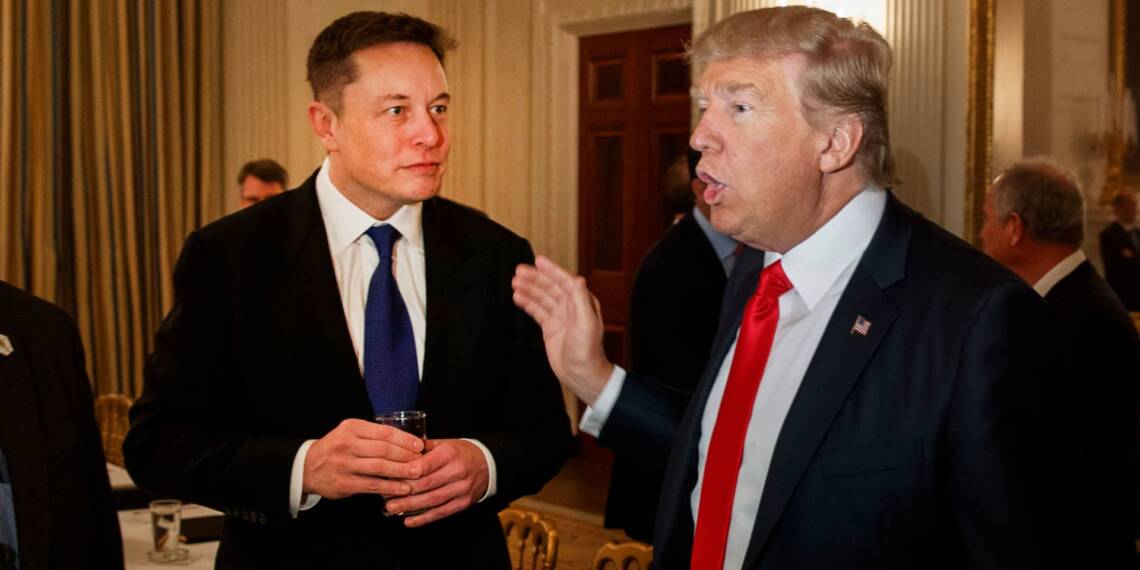A dramatic political and economic rift is unfolding between two of America’s most influential figures: tech mogul Elon Musk and President Donald Trump. The two had managed to win the elections as a duo but now are at complete loggerheads. The battleground? A proposed $4 trillion tax and spending package known as the “Big Beautiful Bill.”
Trump’s Vision for the Bill
Donald Trump has thrown his full political weight behind the bill, calling it a “phenomenal” package designed to supercharge the U.S. economy. It includes:
1. Permanent tax cuts for individuals and corporations
2. Increased military and border security funding
3. Massive infrastructure investments
4. Spending rollbacks on select federal programs
Trump sees the bill as a cornerstone of his plan to “Make America Great Again 2.0,” claiming it will usher in record-breaking economic growth and revive American manufacturing.
Elon Musk’s Fierce Opposition
Elon Musk, never shy about his political opinions, has taken an unusually aggressive stance against the bill. He labeled it a “disgusting abomination” and publicly urged Congress to kill it, warning that it would “bankrupt America.” His concerns center on:
The bill’s potential to balloon the national deficit. The removal of EV tax credits, which could harm Tesla and the broader clean energy sector
There is also a fear that the bill reflects fiscal irresponsibility under the guise of economic stimulus
Musk’s opposition reflects a growing rift between Silicon Valley libertarianism and Trump-era populist economics.
Impact of the ‘Big Beautiful Bill’
The impact of the bill can be seen in both as a positive as well as negative light. On the positive side Trump and his supporters argue that permanent tax cuts and large-scale spending will jump-start growth, especially in manufacturing and defense sectors. Supporters say the reforms will streamline taxation, making it easier for businesses to comply and expand.
They also argue that the infrastructure and defense investments are projected to create millions of jobs over the next decade. The bill will also look to increase funding for military and border enforcement, aligning with Trump’s focus on national strength.
However, Elon and co have a number of issues with the bill, according to them it will lead to a massive increase in National Debt as the Congressional Budget Office estimates it could add $2.4 trillion to the federal deficit by 2034.
Critics argue that most tax benefits favor the wealthy and large corporations, leaving working-class families behind. To offset tax breaks and defense spending, the bill proposes deep cuts to healthcare subsidies, public education funding, and green energy programs.
Elon is also particularly concerned about the bill’s impact on the EV market. By cutting EV tax credits, the bill may slow the transition to renewable energy and hurt companies like Tesla.
What’s Next? The Future of GOP Politics and U.S. Fiscal Policy
The clash between Trump and Musk reflects a broader identity crisis within the Republican Party. Will the GOP lean into Trump’s populist, big-spending nationalism—or will voices like Musk push it back toward fiscal conservatism?
If the bill passes, it could reshape U.S. economic priorities for the next decade—potentially fueling growth, but at the cost of mounting debt. If it fails, it may signal a shift in Republican influence away from Trump and toward more market-focused leaders like Musk.
One thing is clear: the debate over the “Big Beautiful Bill” is about far more than numbers. It’s a battle for the future of America’s economic path.








